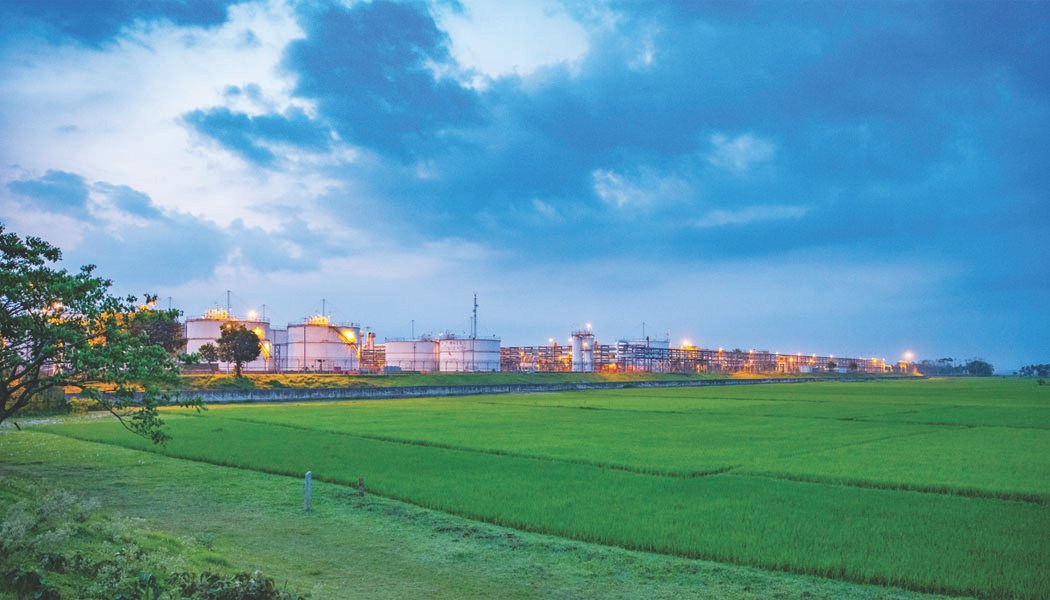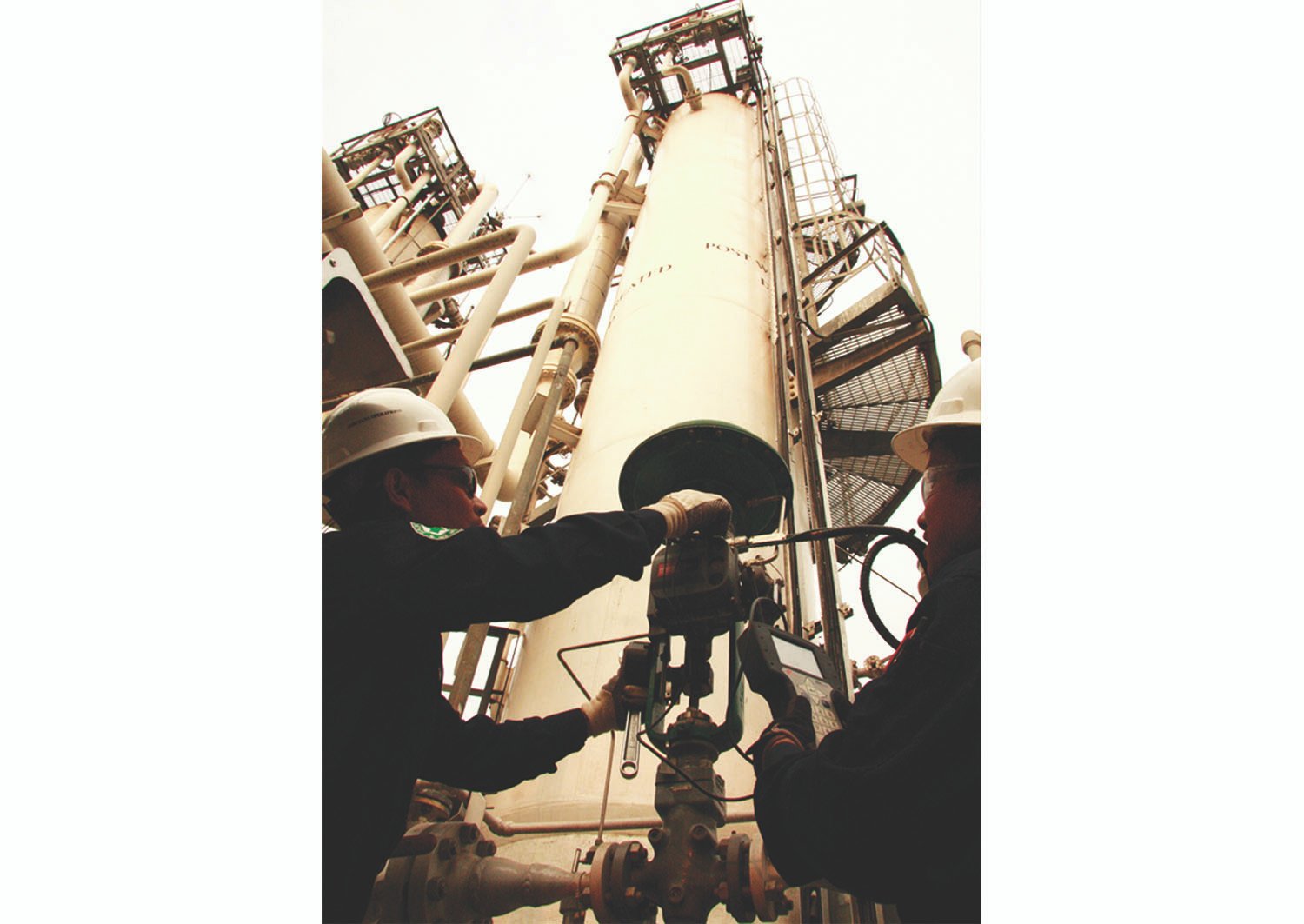
Chevron is one of the world’s leading integrated energy companies involved in virtually every facet of the energy industry. Access to energy helps improve lives by driving human progress and enabling the benefits of modern society. That’s why Chevron is constantly working to provide reliable, affordable, and ever-cleaner energy.
Through its subsidiaries in Bangladesh, the company operates three fields in the northeast of the country. Chevron Bangladesh Block Twelve, Ltd. and Chevron Bangladesh Blocks Thirteen & Fourteen, Ltd. (“Chevron Bangladesh”) is the largest producer of natural gas in Bangladesh, accounting for over 55% of total domestic natural gas production. Its facilities also produce about 85% of the domestic condensate production. Condensate is a liquid hydrocarbon produced with natural gas. Chevron Bangladesh has achieved a remarkable safety record, managing its operations with a workforce that comprises about 95% Bangladeshi nationals. Chevron Bangladesh works with communities across its operations, building long-term partnerships that foster economic development and lasting benefits to them.

Chevron Bangladesh is working on projects to harness the country’s natural resources for its future energy security. For all its operations, it strives to demonstrate a commitment to safety and operational excellence, which are among the company’s core values. Innovative technology plays a key role in helping us deliver affordable, reliable energy that fuels human progress and economic growth. The technologies Chevron Bangladesh deploys are not only cost-effective but also help us recover additional resources from its existing fields. Natural gas and condensate that Chevron produces in Bangladesh are sold to Bangladesh Oil, Gas & Mineral Corporation (Petrobangla), the national oil company. The three gas fields – Bibiyana, Jalalabad, and Moulavi Bazar – are operated under Production Sharing Contracts with the Government of Bangladesh, represented by the Ministry of Power, Energy and Mineral Resources, and with Petrobangla. Also under the PSC is the Muchai Compressor Station, in Bahubal, under Habiganj district, which was inaugurated in 2012 to increase the capacity of the North-South pipeline.
Technology plays an important role in helping Chevron Bangladesh deliver affordable, reliable, ever-cleaner energy that fuels human progress and economic growth around the world. It’s a key driver of change as Chevron Bangladesh becomes a leader in efficient and lower-carbon production of traditional energy, in high demand today and for years to come, while growing the lower-carbon businesses that will be a bigger part of the future. The technologies it deploys help Chevron Bangladesh cost-effectively find and commercialize new oil and gas fields, and recover more resources from existing fields.

Chevron Bangladesh has always put people at the center of the energy conversation. Chevron’s greatest resource is its people. Their ingenuity, creativity, and collaboration have met the complex challenges of energy’s past.
Corporate Social Responsibility is a core value of Chevron’s global business practice. In Bangladesh Chevron has been sponsoring social investment programs since 2006. Its community development initiatives focus on economic development, education, and health.
Chevron Bangladesh invests in activities and programs that focus primarily on economic development, education, and health care, reaching thousands of people in northeast Bangladesh. Chevron carries out most of these projects in partnership with leading nongovernmental organizations.
In Bangladesh, thousands of people in and around Chevron Bangladesh areas of operation in the country’s northeast benefit through partnerships the company has forged with the community and NGOs to address critical socio-economic issues. As a partner with the Bangladesh government as well as local businesses and communities, Chevron also contributes to healthcare, education, and economic development for mutual benefit and progress.
Economic Development
Chevron’s Bangladesh Partnership Initiative (BPI), a multi-year program to support economic development for communities in the greater Sylhet region, works with leading development organizations to establish business and workforce development programs.

The Jibika project, a collaboration between Chevron and BRAC, promotes cooperatives for sustainable income growth of the poor and marginalized farming households around Chevron-operated gas field areas in greater Sylhet. Phase-I of the project successfully modified 110 Village Development Organizations, which later achieved registration from the Department of Cooperatives. Starting with negligible funds, each VDO now has an average operating capital of 6 lacs. BRAC and its implementing partner IDEA have also facilitated intensive training on leadership, fund management, cattle, and vegetable farming for the communities. Since 2015 about 20,000 people in the community benefited from the Jibika project. Following the successful completion of phase-I, phase-II of the project was launched in 2019 to further strengthen the governance and management of the Jibika cooperatives and help them achieve long-term sustainability by 2022.
Uttoron - skills for a better life, a three-year skills development project, commenced its journey in August 2016 with an aim to enhance employment opportunities for 1,400 community members in Sylhet, Moulavibazar, and Habiganj districts. The project under the ‘workforce development' component of BPI was implemented by Swisscontact. Uttoron had a unique partnership with the Skills for Employment Investment Program (SEIP), funded by the Asian Development Bank (ADB) and the Government of Bangladesh, and implemented by the Ministry of Finance. In Phase-I (August 2016 – July 2019), more than 1,400 trainees had been trained in light engineering and construction, and 900 had secured jobs with local companies. After the successful completion of Phase-I and Uttoron Phase-II has been launched in August 2019. So far, this project has been able to provide skills training to approx. 2,000 youths from the greater Sylhet region and Dhaka, to establish a permanent training center in Sylhet in collaboration with Sylhet City Corporation to provide training facilities to the youths beyond the project period. Uttoron has also partnered with Khulna Shipyard Ltd to establish an advanced welding training facility. Moreover, this project developed soft skills apps for all categories of young professionals being employed in different industries. Uttoron has also taken a first-time initiative to develop competency standards and a curriculum for packaging and finishing operation (PFO) which has been accredited by National Skill Development Authority (NSDA).

Uddokta- empowering entrepreneurs was launched in December 2029 aiming to increase household incomes in Chevron catchment through improved access to goods, services, technology, and information and to increase Chevron’s engagement, efforts, and positive impact in the community. So far, Uddokta has been able to reach out to 1,100 micro, small and medium entrepreneurs (MSME) in the greater Sylhet region and provide them with different types of training, and link them with different formal and informal financial institutions to receive funds for business growth.
Education
Under the Quality Education Support initiative, Chevron Bangladesh has been providing scholarships to more than 800 students per year. Chevron also provides school furniture, sports gear, and learning materials to support an improved environment for education in local schools around Chevron-operated gas plant facilities.
The SHIKHON project, a collaboration between Chevron and Save the Children, provided three years of accelerated non-formal primary school education to 1,800 previously out-of-school children and dropouts from 46 villages near its areas of operation. The continuation of the Shikhon model provided extended support for another phase to these marginalized and hard-to-reach children aged 5-7 years to complete a pre-primary component and Grades I through II in 60 Early Primary Education (EPE) centers or one-room schools. They have been equipped to transition into Bangladesh’s national education system to continue their learning journey. The SHIKHON project also engaged 1,800 parents of the participating children, 60 EPE center teachers, and 660 community members. Shikhon project formally ended in February 2022.

In 2019, Chevron Bangladesh launched a pioneering partnership with the Asian University for Women (AUW) in Chittagong. This summer, the AUW Math & Science Summer School, powered by Chevron, selected 61 of the brightest female high school students across Bangladesh to participate in an intensive five-week program focused on Science, Technology, Engineering, and Mathematics (STEM) subjects. The summer program equipped students with the competence and skills necessary to excel in STEM-oriented further studies and careers. In 2022, the program resumed after two years of Covid19 restrictions, and currently, AUW conducted another round of summer school where Chevron sponsors Math & Science and Computer Coding programs. The goal of the 2022 Summer School is to expose girls to quality higher education in the sciences as well as the humanities. The Summer School introduces students to college-level classes and helps them build a strong foundation for success in higher education. The curriculum employs participatory approaches to learning that are student-centered and practice-based. The programs also pique interest in disciplines that are uncommon but important to national development. The Summer School will conclude with a session on academic and career paths in the field.
Healthcare
Chevron Bangladesh is providing primary healthcare services through two clinics in Karimpur and Swastipur nearby Bibiyana Gasplant locations. These two clinics deliver on their commitment to serve the local communities with approximately 60,000 affordable and quality health services every year.
In addition, Chevron Bangladesh has been implementing Water, Sanitation & Hygiene projects for the greater Sylhet communities since 2006; these include the distribution of tube wells for better access to potable water and sanitary latrine sets.
Muhammad Imrul Kabir, Director, Corporate Affairs, Chevron Bangladesh



